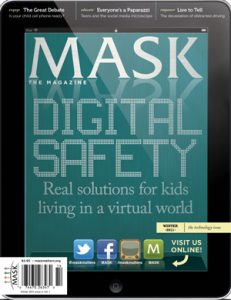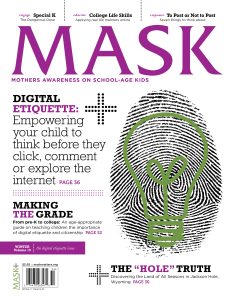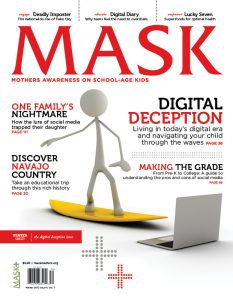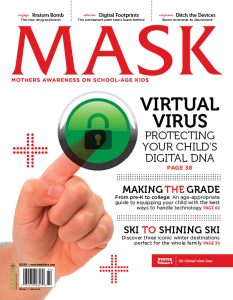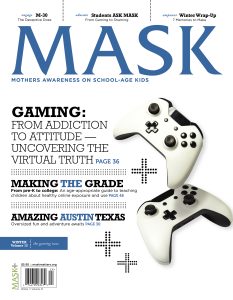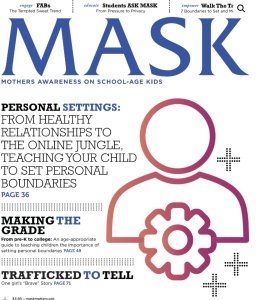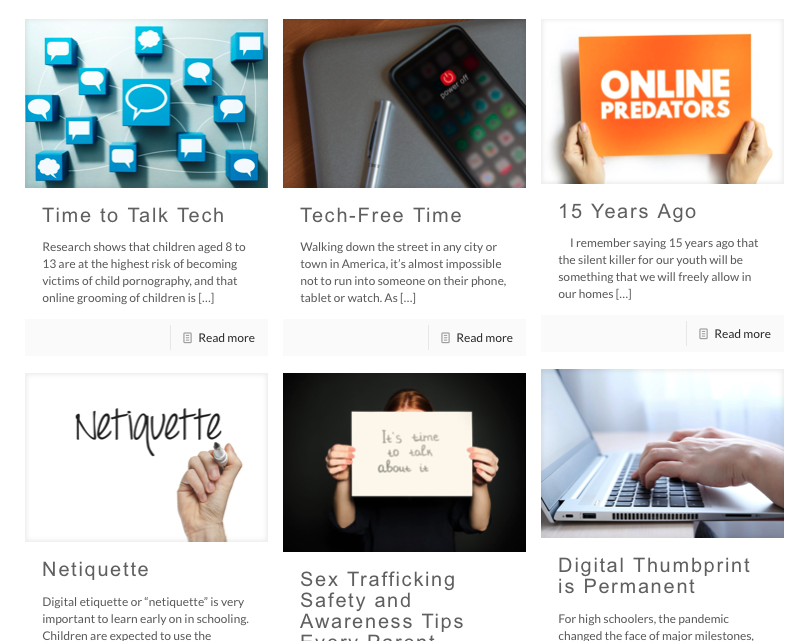
Magazines to Consider Adding to Your MASK Library
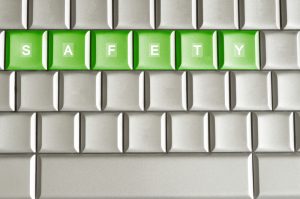
Predators search for potential victims usually in chat rooms, but a child might catch the attention from a predator from information they provided on their blog or profile- on social networking sites like snap chat, instagram and apps like house party.
Predators look for clues about the child, what they like to do, type of music they listen to. How old they are. Much of this information is often revealed by the child’s user name.
Once the predator befriends the child they ask the child if they can include them on the child’s instant messenger or the child’s buddy list. This way they can tell each time the child is online. Anonymity online allows predator to become a “friend”.
Over time the predator can develop a relationship with your child and build their trust. They will ask the child to keep their relationship a secret. At some point the predator will try to move the relationship to the next phase. The ultimate goal is to arrange a face to face meeting, frequently for a sexual encounter. The consequences can be deadly.
If you suspect your child is being contacted by a cyber predator or has received a sexual solicitation online immediately contact.
The CyberTip Line 1-800-843-5678 or www.cybertipline.com (is part of Missing Exploited Children)
If you suspect a face to face meeting has been arranged contact your local law enforcement immediately.
 Other online risks.
Other online risks.
Harassment/cyberbullying
Violent material
pornography
Sexting
Some other things to think about?
Hate groups or racist web sites; promotional material about tobacco, alcohol, or drugs; graphic violence; information on satanic or cult groups; or even recipes for making drugs, bombs or other explosives. Pro-eating disorder sites and suicide sites.
 What you can do.
What you can do.
- Place computers in a central location
- Teach your child to never give out personal information… name, address, name of school , sport activities, phone number.
- Familiarize yourself with computer/settings/limit access, user accounts
- Have child’s email passwords and user-names, especially on social media sites.
- Use Cell phone/computer safety filters such as eblaster; or use safe Internet browsers such as kidzui.com
- Check computer history– see where your child has been while online. Google your child’s name to see if anything comes up.
- Parents Due Diligence (Check up on their activity while using cell phone/internet).
- Let them know that people can pretend to be anyone on the Internet.
- Establish family rules about the Internet. Download MASK’s safe home pledge to use as a guideline.
 Signs that your child might be a victim:
Signs that your child might be a victim:
- Your child becomes withdrawn from family
- Your child is spending more time online
- Your child turns off the screen when you walk in the room
- You find pornography
- Your child receives mail/packages from people or businesses you don’t know
- Do you think it is ok to talk to a stranger in a park? Do you think it is any different talking to someone online that you don’t know?
- If someone you didn’t know tried to talk to you while playing a computer game…what would you do?
- What if you became friends with someone online and they asked to meet you after school..Would you do it?
- Do you know that giving your personal information to someone online enables them to track you down within 30 minutes, and find you.
- Do you know what personal information is?
Junior High
According to the National Crime Prevention Center, over 40% of all teenagers with Internet access have reported being bullied online during the past year.
 Other online risks.
Other online risks.
- Identity theft
- Exposure to sexually explicit or violent material
- Sexual Predators
- Harassment/cyberbullying
- Violent material
- Sexting
- Teen sexual trolling (visit pornography)
Some other things to think about
Hate groups or racist web sites; promotional material about tobacco, alcohol, or drugs; graphic violence; information on satanic or cult groups; or even recipes for making drugs, bombs or other explosives. Pro-eating disorder sites and suicide sites.
 What you can do
What you can do
Make it safe for them to come to you with concerns about people they’ve met online; when something inappropriate pops up or if someone else sends them inappropriate stuff; and/or if someone harasses or threatens them online.
- Make sure you have all of their user names and passwords
- Establish family rules about the Internet. Download the maskmatters app for contracts, conversation starters and more. (Available on the app store and google play)
- If you see it, print it or take a screen shot of it and report it.
- Keep computers in a common area in your home. Don’t let children have computers in their rooms or behind closed doors.
- User profiles-New versions of Windows/Apples software allows for multiple user profiles. Every person who uses the computer can have their own user name and password. Name and password are required to log in. This way you can set up different levels of access for each of the different users, and it makes it easier to track and find out what each of the users is doing. (To get more information consult your computers help files)
 Signs that your child might be a victim:
Signs that your child might be a victim:
- Computer avoidance.
- Computer obsession.
- Change in behavior at home or school / school avoidance.
- Kids will either want to be on the computer to see if anything else is being written for others to see, or they will avoid it altogether.
- Withdrawn /depressed, not interested in previous enjoyed activities
- Anxiety anger fear, depression, nightmares
- Any change in their behavior is usually a sign something is going on in their world.
- Do you know anyone who has been cyberbullied? How do you think they felt?
- How would you feel if 25 kids posted negative things on your facebook wall? What would you do? How would you process all those negative comments?
- Negative words hurt! I remember hurtful comments and sometimes those words stick to you. How do you think you could learn to deflect those comments?
High School
 Other online risks.
Other online risks.
- Identity theft
- Exposure to sexually explicit or violent material
- Sexual Predators
- Harassment/cyberbulling
- Violent material
- Sexting
- Teen Sexual trolling pornography
 Some other things to think about:
Some other things to think about:
Hate groups or racist web sites; promotional material about tobacco, alcohol, or drugs; graphic violence; information on satanic or cult groups; or even recipes for making drugs, bombs or other explosives. Pro-eating disorder sites and self harm communities.
 Possible Consequences of inappropriate posts
Possible Consequences of inappropriate posts
- Affects future career opportunities
- Criminal record
- Could sway college entry
- Tainted reputation
- Exposing yourself/family/others to gossip
- Attracting online predators
- If you noticed your best friend posting inappropriate pictures, what would you do? Would you talk to him about it?
- How would you feel if your friend said you were posting inappropraite images?
- Do you know that what you post stays on the internet forever? Did you know “delete” doesn’t mean “gone”?
- Do you know that predators look for certain behaviors online such as (images, videos) to pass along to other predators?
- What do you think would happen if the college you wanted to go to found a picture of you online drinking alcohol underage?
- What would you do if someone posted a picture of you unclothed online? Who would you tell?
 Safety Tips : What you can do.
Safety Tips : What you can do.
- Educate your child on the long-term effects of inappropriate posts.
- Monitor your child’s social media interactions online and on their cell-phone.
- Emphasize to your child they should be the same person online as they are offline.
- Know every application that your teen is using.
- Set up rules about applications. Require your approval for applications before they are downloaded.
- Be your child’s friend on social media sites

